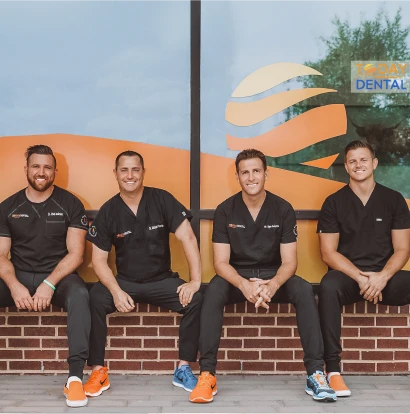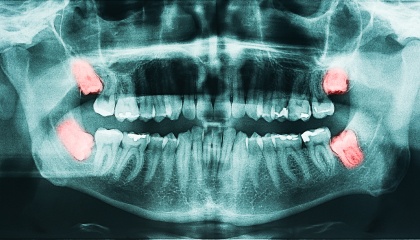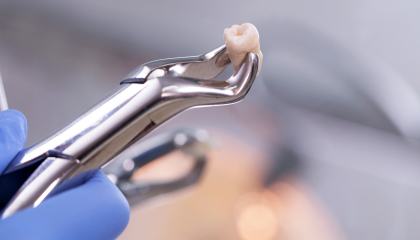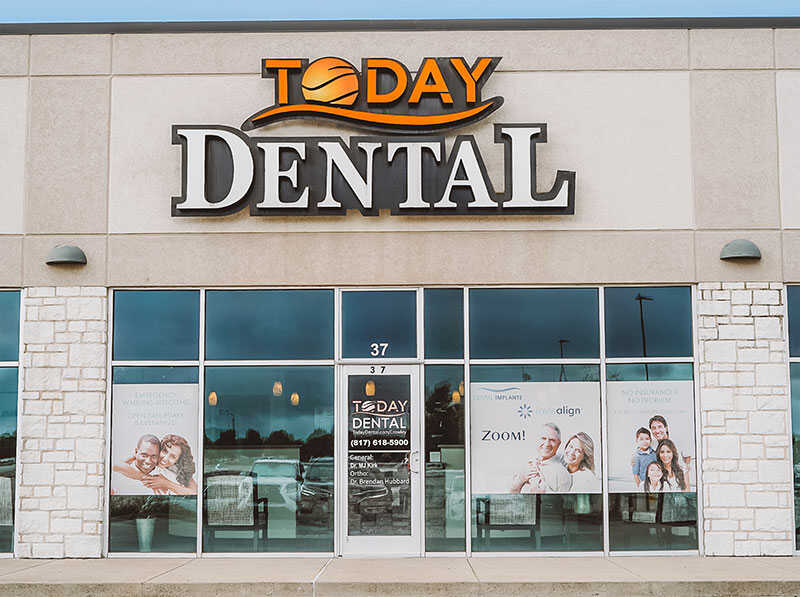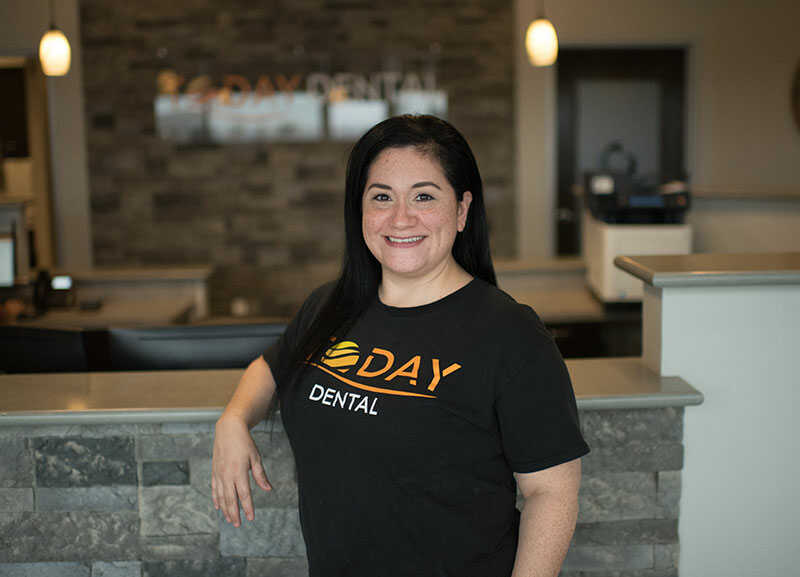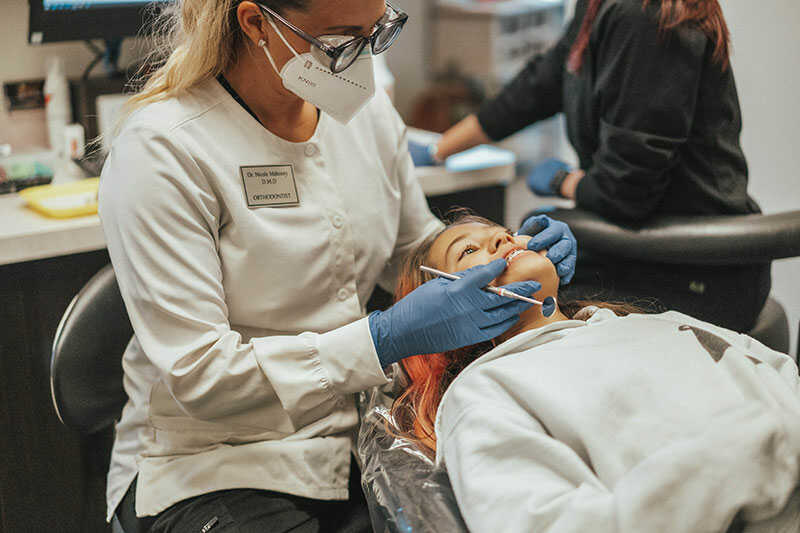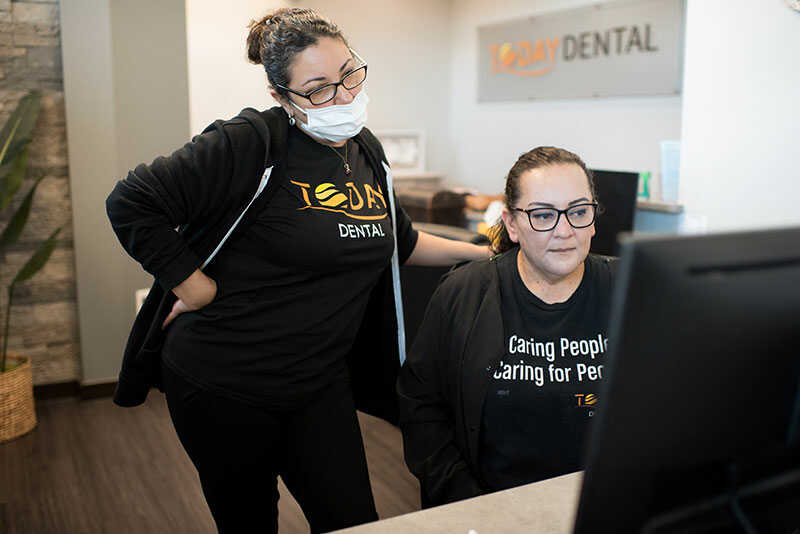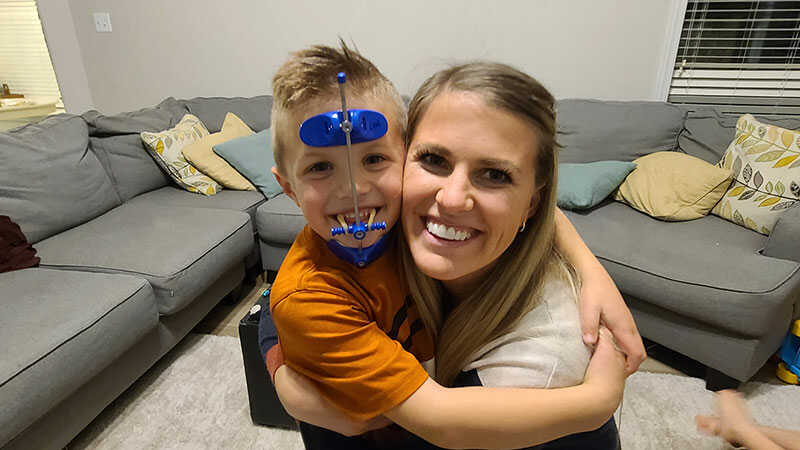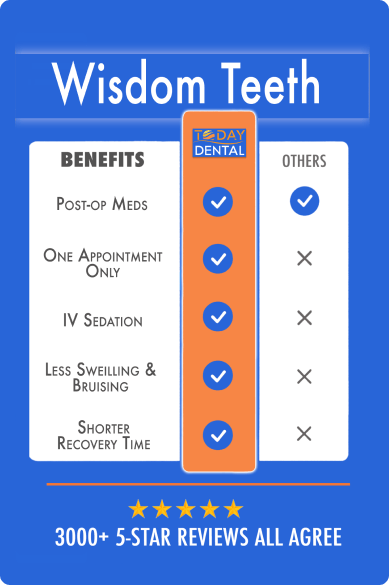
Your Crowley Dentist

Opening Hours
| Day | Hours |
|---|---|
| Monday | 8:30 a.m. - 5:30 p.m. |
| Tuesday | 8:30 a.m. - 5:30 p.m. |
| Wednesday | 8:30 a.m. - 5:30 p.m. |
| Thursday | 8:30 a.m. - 5:30 p.m. |
| Friday | 8:30 a.m. - 3:00 p.m. |
| Saturday | 8:00 a.m. - 2:00 p.m. |
| Sunday | Closed |
Your Crowley WISDOM TEETH EXPERTS
Frequently Asked Questions
How long does wisdom teeth removal typically take?
The duration of wisdom teeth removal varies depending on several factors, including the number of teeth involved and their position within the jaw (erupted, partially impacted, or fully impacted). Unforeseen complications can also influence the timeframe. At Today Dental, a straightforward extraction of four wisdom teeth typically takes around 30 minutes, excluding pre-operative and post-operative procedures. However, impacted or horizontally positioned teeth may require a longer procedure.
Remember, the total time spent at the dental office encompasses various steps: pre-operative preparations (consultation and x-rays), administering anesthesia or sedation, the actual extraction itself, and post-operative monitoring. During your individual consultation, your dentist or oral surgeon will provide a more precise estimate based on your unique situation.
Understanding the cost of your wisdom teeth removal:
The cost of removing wisdom teeth can vary significantly due to several key elements. Impacted or horizontally positioned teeth often require more specialized techniques, leading to a higher cost. Additionally, the type of anesthesia or sedation used plays a role, with IV sedation generally costing more than local anesthesia. Finally, the location of the teeth within the jawbone matters. Fully impacted teeth are typically more complex to remove than partially erupted ones, impacting the cost.
At Today Dental, the average cost for four wisdom teeth extractions, including IV sedation, ranges from $1,400 to $2,400. To receive an accurate and transparent cost estimate with no hidden fees, schedule a free consultation with our Crowley dentist.
What to expect during your initial consultation:
During your initial visit, we'll delve into your medical history and have a thorough discussion about the wisdom teeth removal process. We'll take x-rays to assess the position and condition of your wisdom teeth, allowing us to create a personalized treatment plan tailored to your specific needs. This plan will outline the costs, timeline, and steps involved in the procedure. We also encourage you to ask any questions you may have; we're here to address any concerns you might have about the procedure.
Recovering after wisdom teeth removal:
Following wisdom teeth removal, it's normal to experience swelling and mild discomfort for 5-7 days. In most cases, you'll receive pain medication to manage any discomfort. Applying an ice pack to your face can help reduce swelling, and initial bleeding can be controlled with gauze pads. At Today Dental, we often administer medications through your IV during the procedure to address post-operative swelling and pain. Additionally, we'll provide detailed post-operative care instructions covering dietary adjustments, proper oral hygiene practices, and follow-up appointments to monitor your healing and address any concerns. Remember to start with soft foods and liquids initially, gradually transitioning to a normal diet as healing progresses.
Should I get my wisdom teeth removed?
The decision to remove wisdom teeth depends on several factors and is usually made after a comprehensive examination by your dentist at Today Dental. Wisdom teeth, also known as third molars, may need removal if they cause problems like:
- - Impaction: Stuck in the jawbone and unable to erupt properly.
- - Crowding: Cause other teeth to shift or become misaligned.
- - Pain or pressure: Cause discomfort or pressure in the jaw.
- - Infection: Become infected due to difficulty cleaning them properly.
- - Damage to nearby teeth: Damage or harm surrounding teeth.
Even if your wisdom teeth aren't causing immediate problems, we may recommend removal to prevent potential future complications, which are quite common.
